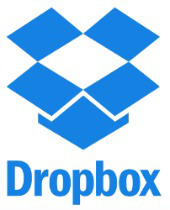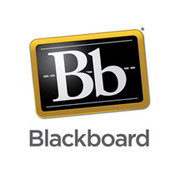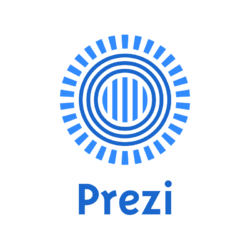Back to school in college is back to sharing. While on campus you share everything. You split the room with your roommate. You borrow clothes from the girl down the hall. You take your turn at the newest version of FIFA your friend got over the summer. While students are warned about shared physical space, what no one tells them is how often they will need to “share” digital space, such as shared documents or online tools to share the workload on group projects.
Looking back on my freshman fall semester, my peers and I wasted time figuring out how to work together on group projects or how to add edits to a club’s constitution. Here are some collaborative programs I wish I had known about:
What are Different Sharing Outlets:
 Dropbox- Dropbox serves as a place to store files, photos, videos, and more. Dropbox is an easy backup storage option and a way to share files with others. You can send family and friends specific links to files and documents. So if your friend needs to borrow your statistics textbook but you’re using it just upload pictures to dropbox and your friend can access them from any device.
Dropbox- Dropbox serves as a place to store files, photos, videos, and more. Dropbox is an easy backup storage option and a way to share files with others. You can send family and friends specific links to files and documents. So if your friend needs to borrow your statistics textbook but you’re using it just upload pictures to dropbox and your friend can access them from any device.
 Blackboard- Blackboard is a website that partners with academic institutions to provide online learning services ranging from online tests and quizzes for a specific class to a discussion board for a club. From my experience is both a blessing and a curse. Your professors sometimes post readings on the website so you don’t have to buy the book, but frequently assignments are paired along with those readings. Additionally, blackboard is a good resource for clubs that require viewing or using specific documents. For example, one of the professional clubs on campus posts example resumes for their members to view. Moodle, Sakai, and other educational websites function very similarly to Blackboard
Blackboard- Blackboard is a website that partners with academic institutions to provide online learning services ranging from online tests and quizzes for a specific class to a discussion board for a club. From my experience is both a blessing and a curse. Your professors sometimes post readings on the website so you don’t have to buy the book, but frequently assignments are paired along with those readings. Additionally, blackboard is a good resource for clubs that require viewing or using specific documents. For example, one of the professional clubs on campus posts example resumes for their members to view. Moodle, Sakai, and other educational websites function very similarly to Blackboard
 Prezi- Prezi is a website that transforms presentations from the typical slideshow into a more interactive presentation.You can see where and what other users are editing and changing in the presentation. Additionally, Prezi has a variety of interactive and organic looking templates that you can choose and edit. So when giving a presentation in your philosophy class, the layout may keep your class more captivated on Plato’s theories than a standard slideshow.
Prezi- Prezi is a website that transforms presentations from the typical slideshow into a more interactive presentation.You can see where and what other users are editing and changing in the presentation. Additionally, Prezi has a variety of interactive and organic looking templates that you can choose and edit. So when giving a presentation in your philosophy class, the layout may keep your class more captivated on Plato’s theories than a standard slideshow.
 Google Drive- Google drive is likely the most used application for sharing online documents, especially since most college email addresses are set up through Gmail. Google drive automatically saves what you are working on so you never have to live in fear of losing an essay before the deadline. Also, Google Drive allows you to determine who has access and to what degree they have access to the document.You can limit someone to viewing it, just commenting, or making full edits. While simultaneously working in a file you can see where and what your fellow editor is changing. Since every student has a demanding and busy schedule while in college, Google Drive allows group projects and presentations to be worked on remotely.Rather than staying up until sunrise trying to find a time that works for my group, we were able to work on our own time frame to complete major projects.
Google Drive- Google drive is likely the most used application for sharing online documents, especially since most college email addresses are set up through Gmail. Google drive automatically saves what you are working on so you never have to live in fear of losing an essay before the deadline. Also, Google Drive allows you to determine who has access and to what degree they have access to the document.You can limit someone to viewing it, just commenting, or making full edits. While simultaneously working in a file you can see where and what your fellow editor is changing. Since every student has a demanding and busy schedule while in college, Google Drive allows group projects and presentations to be worked on remotely.Rather than staying up until sunrise trying to find a time that works for my group, we were able to work on our own time frame to complete major projects.
Tips and Tricks of Sharing:
- When opening documents or slideshows through different application, the format frequently changes. A picture you rotated and placed at the top of your document in Microsoft Word may have be upside and at the bottom of a Google Doc.
- When working on a shared project be sure to set guidelines about who edits what and if it is appropriate to change other group members work. It can get pretty awkward when someone thinks they are presenting something but different language or information is depicted on the slideshow.
- While simultaneously editing a document on services such as Google Drive or Prezi be aware of your fellow editors. For example, in Google Drive you have the opportunity to chat with anyone in the document making working on projects more cohesive. Additionally you may leave comments or suggestions for people who are not in the document at the same time as you. When using Prezi, students will frequently leave “captions” for their fellow editors to read.
- Google Drive has additional settings that can be very useful. When you create the Google file you have the opportunity to set sharing settings. By going to the blue share button and then clicking advanced you can allow users to view only, suggest only, disable printing/copying and changing the ability of other users editing settings and comments.
- Although you may think you are spelling everything correctly when working in blackboard, because of the lack of red lines under your word, Blackboard does not have automatic spell check. Be sure to use the spell check option in the text settings menu.
- As a reminder, posts and comments on Blackboard are always visible to professors and admin whereas comments on other websites are private until shared.
- Don’t be shocked when you see that there are anonymous animals in your Google Doc.When Google Drive doesn’t recognize the user (if its a public doc or maybe the doc was sent over a mailing list) when they open the document their icon is an anonymous animal such as anonymous liger or anonymous giraff.
This information about online documents is all stuff I learned while approaching a group project deadline. Learning and exploring these systems can save you time and stress when working toward a grade. So I’ve invited you to view and share my document about what I wish I knew about online shared documents.
Written by
Giselle Tirado
Giselle Tirado, summer intern for FOSI, is a rising junior majoring in government and finance at the College of William and Mary. She is committed to the mission of online safety as she actively works as the liaison of the digital world for her parents and two younger siblings (8 year old brother and 17 year old sister). During the academic year, Giselle continues this foster the ideals of online safety through leadership roles in her sorority, Chi Omega, and mentoring organizations on campus. Her various roles mentoring students include: acting as a lead caller at the William and Mary University Advancement Office, acting as a diversity mentor in the student peer advising network, and as an orientation aid through the First Year Experience Office. In her free time, she enjoys reading, hiking, and dancing. Giselle is very excited to continue working with the FOSI team this summer.









 Dropbox- Dropbox serves as a place to store files, photos, videos, and more. Dropbox is an easy backup storage option and a way to share files with others. You can send family and friends specific links to files and documents. So if your friend needs to borrow your statistics textbook but you’re using it just upload pictures to dropbox and your friend can access them from any device.
Dropbox- Dropbox serves as a place to store files, photos, videos, and more. Dropbox is an easy backup storage option and a way to share files with others. You can send family and friends specific links to files and documents. So if your friend needs to borrow your statistics textbook but you’re using it just upload pictures to dropbox and your friend can access them from any device. Blackboard- Blackboard is a website that partners with academic institutions to provide online learning services ranging from online tests and quizzes for a specific class to a discussion board for a club. From my experience is both a blessing and a curse. Your professors sometimes post readings on the website so you don’t have to buy the book, but frequently assignments are paired along with those readings. Additionally, blackboard is a good resource for clubs that require viewing or using specific documents. For example, one of the professional clubs on campus posts example resumes for their members to view. Moodle, Sakai, and other educational websites function very similarly to Blackboard
Blackboard- Blackboard is a website that partners with academic institutions to provide online learning services ranging from online tests and quizzes for a specific class to a discussion board for a club. From my experience is both a blessing and a curse. Your professors sometimes post readings on the website so you don’t have to buy the book, but frequently assignments are paired along with those readings. Additionally, blackboard is a good resource for clubs that require viewing or using specific documents. For example, one of the professional clubs on campus posts example resumes for their members to view. Moodle, Sakai, and other educational websites function very similarly to Blackboard Prezi- Prezi is a website that transforms presentations from the typical slideshow into a more interactive presentation.You can see where and what other users are editing and changing in the presentation. Additionally, Prezi has a variety of interactive and organic looking templates that you can choose and edit. So when giving a presentation in your philosophy class, the layout may keep your class more captivated on Plato’s theories than a standard slideshow.
Prezi- Prezi is a website that transforms presentations from the typical slideshow into a more interactive presentation.You can see where and what other users are editing and changing in the presentation. Additionally, Prezi has a variety of interactive and organic looking templates that you can choose and edit. So when giving a presentation in your philosophy class, the layout may keep your class more captivated on Plato’s theories than a standard slideshow. Google Drive- Google drive is likely the most used application for sharing online documents, especially since most college email addresses are set up through Gmail. Google drive automatically saves what you are working on so you never have to live in fear of losing an essay before the deadline. Also, Google Drive allows you to determine who has access and to what degree they have access to the document.You can limit someone to viewing it, just commenting, or making full edits. While simultaneously working in a file you can see where and what your fellow editor is changing. Since every student has a demanding and busy schedule while in college, Google Drive allows group projects and presentations to be worked on remotely.Rather than staying up until sunrise trying to find a time that works for my group, we were able to work on our own time frame to complete major projects.
Google Drive- Google drive is likely the most used application for sharing online documents, especially since most college email addresses are set up through Gmail. Google drive automatically saves what you are working on so you never have to live in fear of losing an essay before the deadline. Also, Google Drive allows you to determine who has access and to what degree they have access to the document.You can limit someone to viewing it, just commenting, or making full edits. While simultaneously working in a file you can see where and what your fellow editor is changing. Since every student has a demanding and busy schedule while in college, Google Drive allows group projects and presentations to be worked on remotely.Rather than staying up until sunrise trying to find a time that works for my group, we were able to work on our own time frame to complete major projects.





.svg)

